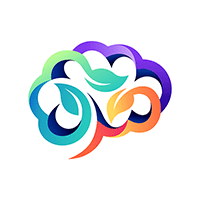Attainment Targets
Attainment Target 3: Reading and Responding
- Level 1: Pupils show that they understand single words presented in clear script in a familiar context. They may need visual cues.
- Level 2: Pupils show that they understand short phrases presented in a familiar context. They match sound to print by reading aloud single familiar words and phrases. They use books or glossaries to find out the meanings of new words.
- Level 3: Pupils show that they understand short texts and dialogues, made up of familiar language, printed in books or word-processed. They identify and note main points and personal responses [for example, likes, dislikes and feelings]. They are beginning to read independently, selecting simple texts and using a bilingual dictionary or glossary to look up new words.
- Level 4: Pupils show that they understand short stories and factual texts, printed or clearly handwritten. They identify and note the main points and some details. When reading on their own, as well as using a bilingual dictionary or glossary, they are beginning to use context to work out what unfamiliar words mean.
- Level 5: Pupils show that they understand a range of written material, including texts covering present and past or future events. They identify and note main points and specific details, including opinions. Their independent reading includes authentic materials [for example, information leaflets, newspaper extracts, letters, and databases]. They are generally confident in reading aloud, and in using reference materials.
- Level 6: Pupils show that they understand a variety of texts that cover past, present and future events and include familiar language in unfamiliar contexts. They identify and note main points and specific details, including points of view. They scan written material, for stories or articles of interest, and choose books or texts to read on their own, at their own level. They are more confident in using context and their knowledge of grammar to work out the meaning of language they do not know.
- Level 7: Pupils show that they understand a range of material, imaginative and factual, that includes some complex sentences and unfamiliar language. They use new vocabulary and structures found in their reading to respond in speech or in writing. They use reference materials when these are helpful.
- Level 8: Pupils show that they understand a wide variety of types of written material. When reading for personal interest and for information, they consult a range of reference sources where appropriate. They cope readily with unfamiliar topics involving more complex language and recognise attitudes and emotions.
- Exceptional Performance: Pupils show that they understand a wide range of factual and imaginative texts, some of which express different points of view, issues and concerns, and which include official and formal material. They summarise in detail, report, and explain extracts, orally and in writing. They develop their independent reading by choosing stories, articles, books and plays according to their interests, and responding to them.
